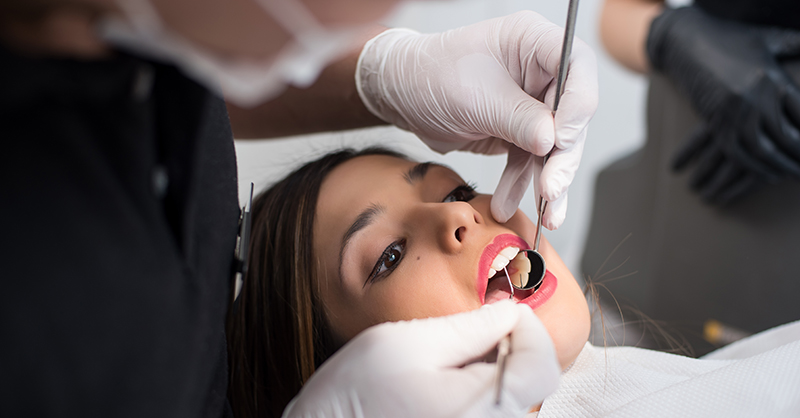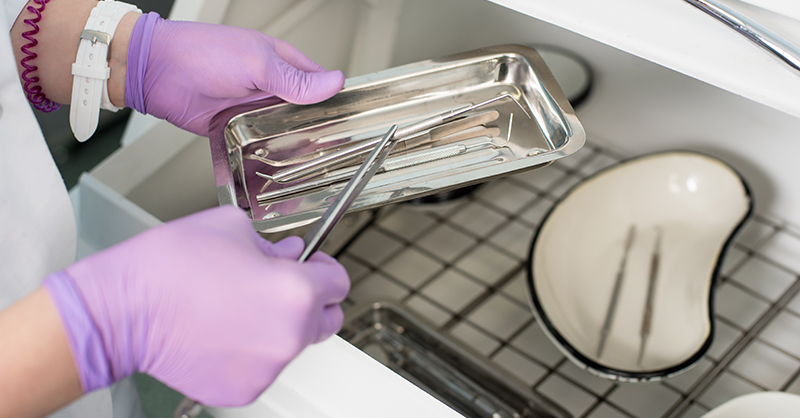Maintaining dental health is vital for overall well-being, but many people are afraid of the dentist or just keep pushing a visit off. Even some of those who work in the dental field now, like Jenah Wieczorek, were once in that boat.

“I hated going to the dentist when I was a kid,” Jenah said. “It was never fun for me and it was never a field I saw myself working in. But when an opportunity arose during high school for a part-time job working as a dental hygienist assistant at a pediatric dentist’s office, my interest was piqued. I worked there for two years, watching hygienists help children into the chair and ensure they had a positive experience,” she said. “I wanted to do that, too.”
After completing an Associates of Applied Science in Dental Hygiene from Athens Technical College, Jenah continued her studies with two more years of core classes at Clayton College and State University. She is licensed in the states of Georgia and Texas as a Registered Dental Hygienist (RDH).
Jenah has always loved working with children, so deciding to work at a pediatric dental office was an easy decision. “The best part of my day is letting kids ride the chair up and down, teaching them songs to sing while they brush their teeth and letting them shoot the water gun. That usually makes them comfortable enough to let me clean their teeth.”
A day in the life
Sometimes it’s easier to imagine a career when you can watch someone doing it. In her own words, Jenah breaks down the intricacies of a day on the job.
Upon arrival at work, I sterilize, stock and set up my operatory. I review my patients on the schedule that day and go over any health concerns, medications or physical restrictions that I need to consider.
I call back my first patient and take their blood pressure. People don’t always love to go to the doctor and high blood pressure is a silent killer, so we take their BP and let them know that number. Then we spend some time on medications.
The majority of medications on the market today cause Xerostomia, a.k.a. dry mouth. Dry mouth is uncomfortable and can lead to tooth decay, so we need to spend some time discussing it and will recommend products if necessary.
I take X-rays, if applicable. I do a head and neck exam to include the mouth and tongue, checking for signs of oral cancer. We want to catch any cancer in the beginning stages and oral cancer is no different.
I then do the actual teeth cleaning, which is the fun part for me! It’s almost like a puzzle and everyone is different. I can see brushing and flossing habits, I can tell if a patient had pizza last night (because everyone bites in when it’s still so hot and I can see that burn!), I can tell if a patient is a red wine lover — and the list goes on!
I take some measurements in the gums to check for periodontal disease and gum health. I clean the patient’s teeth and then talk to the patient about all of the things that I saw. Maybe the patient is missing brushing at the gum line, so I offer a different technique and toothbrush to help. Maybe this is a geriatric patient who has someone brush for them, but they are missing the left side. In that case, I would make notes for the caretaker.
The patient education piece at the end of the cleaning is where I can really make a difference and help patients improve their oral care. Why is that important? Bacteria lives in saliva, saliva runs through the blood stream which reaches all organs, including the heart. You want to reduce the amount of bacteria that is running through your entire body. It’s all connected.
Then, I ring for the dentist and catch them up to speed on everything. They will come take a look and confirm findings. We answer any other questions and then schedule a six-month follow up appointment.

The many faces of dentistry
Sometimes, people who work in a dental office get grouped together and their positions confused. A dental hygienist is the one who cleans your teeth, though they can do so much more. They are licensed in dental hygiene, but they are also able to provide educational, clinical, research, administrative and therapeutic services.
Another friendly face in the dental office is the dental assistant, who is able to help with a variety of tasks. You’ll probably talk to them when making your appointment and checking in. They are also close at hand during any procedures. Becoming a dental assistant is a great way to begin your career, since you can gain experience and hands-on training before climbing the ladder.
For someone who’d rather work in the lab than with people, the option to be a dental laboratory technician comes with great job prospects. Usually working with the restorative dentists, or those who specialize in prosthodontics or orthodontics, the dental lab tech works on projects like crowns and bridges, ceramics and implants.
Of course, at the center of it all is the dentist. While 80% of those who attend dental school work in a dental practice, there are several other options for using your knowledge. You could work in research, shape public policy or even be a dentist in the military. Like most careers in dentistry, the outlook on job growth is positive for dentists.
A little advice from the field
One thing to keep in mind with a dental hygiene job — and with most licensed health care professions — is that each state may have their own requirements for practicing. What is the norm in Texas may not be the same in California. Be sure to research the requirements in your state before completing your education.
Continuing education is a requirement for dental hygienists as well. Jenah attends the Hinman Conference in Atlanta each year and keeps up-to-date on CE requirements offered through Colgate. RDH Magazine is a free resource that she recommends reading.
Her final thoughts: “Dental hygiene is an amazing profession. People think it can get monotonous to ‘just clean teeth,’ but with the unique needs of each patient, that couldn’t be further from the truth!”

Comment:
This is very helpful, I’m changing my major from Early Childhood to Dental Hygiene and I needed this to confirm the decision. Thanks for your perspective.